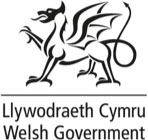
Social Value in the Further Education Sector in Wales
Social Value in Wales through Further Education
Cwmpas was commissioned by ColegauCymru to carry out this first piece of research exploring social value in the Welsh Further Education (FE) sector. Dr Sarah Evans, Director Business Growth and Consultancy at Cwmpas talks about how she was positively overwhelmed by the work all 13 FE colleges in Wales are doing in relation to social value. In this blog, Sarah talks about the way each FE college has adapted to local and regional circumstances and opportunities.
Recently, I was really pleased to join staff and members of ColegauCymru and the Cabinet Secretary for Education, Lynne Neagle (MS), to launch the report: Demonstrating the Social Value of Further Education Colleges in Wales. “social value is at the heart of everything we do”.
Although the term social value was rarely explicitly used by the FE colleges, what became clear from our research was that social value is implicit in nearly all of their activities – and this approach could be a beneficial tool to emphasise the wider reach of the sector. During one of our interviews, a college Principal explained “social value is at the heart of everything we do” and I wholeheartedly agree.
To explore social value within the FE sector, we used the goals of the Wellbeing of Future Generations Act as a framework and undertook desk-based research, reviewed the current strategic drivers for the sector and completed interviews and workshops with key sector stakeholders, allowing us to shape the core components of social value within FE in Wales. Our work highlighted the following:
Economy in Wales
Each FE institution acts as an anchor organisation in shaping both the current and future local/regional economy. They are delivering skills training as well as developing new training courses to fill existing and future skills gaps. Several of the colleges have also secured Shared Prosperity Funding (SPF) to deliver additional skills and innovation programmes, with many focusing on skills in the green economy, digital and advanced manufacturing techniques.
The sector is starting to look at local procurement spend, particularly in relation to capital projects and highlighting opportunities where local supply chains can be used or developed. FE institutions are also looking at their role in terms of town centre regeneration, for example how new campuses in town centre locations can increase local footfall and develop both daytime and nighttime economies.
People-Focused
The sector has adopted a people-focused approach with both learners and staff at their centre. Each institution considers how it can provide additional support and added value for their students. This includes providing lifelong learning opportunities, as well as embedding equality such as supporting the delivery of Wales’ Anti-Racist Wales Action Plan by developing local action plans in each college, led by ColegauCymru and Black Leadership Group.
FE colleges are also employing locally, promoting fair work and equality of opportunities for their staff. Many are also considering the implications of the new Social Partnerships legislation and the way in which they are engaging with staff and Unions. Post-Covid, there has been a significant growth in the mental health and wellbeing support available to both learners and staff.
Collaboration
Collaboration was a key theme of the ColegauCymru conference1 in October 2023. Each institution is delivering additional economic and social value through its work with businesses, public sector and other education institutions, as well as the opportunities these partnerships are creating for students and employees of both the colleges and partner organisations. There are also areas where FE is generating social value in fields which might be considered ‘traditional’ for the sector, such as international partnerships and research.
Community Initiatives
Most of the colleges are supporting their local communities in different ways. These include delivering classes and activities within community settings, or organising and supporting community events, while for other colleges the campus is seen as a community asset, hosting sports clubs and providing meeting spaces for community groups and local charities. The term ‘civic mission’ was not used during the interviews – it is a term that is sometimes considered to mean ‘add on’ activities that an institution is undertaking, whereas the activities discussed by the FE sector seemed far more natural, that were rooted within their local communities.
Welsh Language and other languages
The FE institutions continue to embed the Welsh language into their settings. The progress made reflects regional differences, but many are now offering courses, work opportunities and support through the medium of Welsh, while others are developing learner/staff ability and confidence to use the Welsh language at all levels. One college Principal mentioned that there are 55 different languages spoken at the campus and therefore lingual support, particularly through the ESOL provision, goes beyond Welsh and English.
Colleges are also delivering social value through their cultural activities – many of these activities come to fruition through creative and arts-based subjects, such as costume design. Others own and run valuable cultural assets, such as local theatres.
Net Zero
Sustainability and planning for net zero are cross-cutting components used by the FE sector to generate social value. The path to net zero underpins strategic plans and is incorporated into future planning, particularly in terms of campus development. Colleges are also including sustainability modules in different courses, developing green skills academies, measuring their environmental footprint, reviewing and redesigning current energy systems and retrofitting their estate assets.
Driving Positive Change in Wales
I believe this report can act as a baseline study for the sector, as it considers what’s next in terms of social value. We recognise there are opportunities to further embed and embrace social value within the sector, focusing on legislative alignment, leadership advocacy, internal collaboration, and formalised reporting approaches. By implementing the report’s recommendations, the FE sector will be able to maximise its societal contributions and set a transformative precedent for the role of education in driving positive change in Wales.
I really hope that Cwmpas will continue to support ColegauCymru and the individual colleges as they continue on their social value pathway.
The work has been led by Cwmpas with support from the Centre for Local Economic Strategies (CLES).
If you would like to discuss the work further, please contact me. sarah.evans@cwmpas.coop









